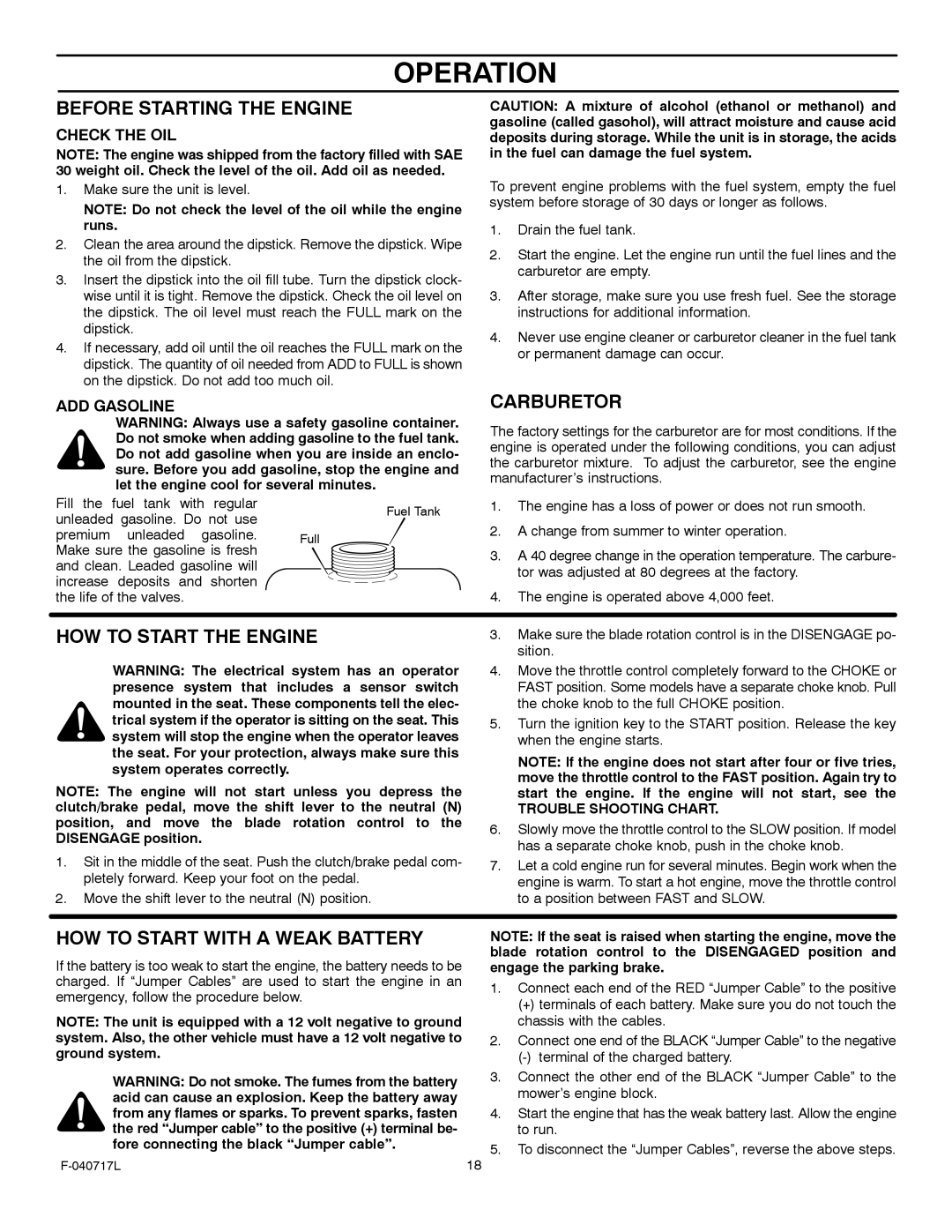387002x92A specifications
Murray 387002x92A is a notable piece of equipment in the realm of power tools, designed to deliver exceptional performance and reliability for a variety of tasks. As a sophisticated model, it showcases numerous features and technologies that set it apart in the market.One of its main features is the powerful motor, which ensures optimal performance for heavy-duty jobs. This motor is designed to generate substantial torque, making it suitable for both light and heavy applications. The lightweight build of the Murray 387002x92A also enhances its usability, allowing for easy maneuverability without sacrificing power. This combination of strength and ease of use makes it a favorite among both professionals and DIY enthusiasts.
Another significant characteristic of the Murray 387002x92A is its precision engineering. The design integrates advanced technology that allows for accurate cuts and operations, ensuring that users achieve the best possible results. This is particularly useful in projects that require meticulous attention to detail, as it minimizes the risk of error.
The tool incorporates state-of-the-art safety features, including slip-resistant grips and an emergency shut-off mechanism, which enhances user safety during operation. These safety measures are crucial for protecting users from accidents while ensuring that they can focus on their work without distraction.
Moreover, the Murray 387002x92A is built with durability in mind. The materials used in its construction are resistant to wear and tear, making it a long-lasting investment for users. This resilience ensures that the equipment can withstand tough working conditions and remain functional over time.
In terms of versatility, the Murray 387002x92A excels with its myriad of attachments and accessories that allow for a wide range of applications. Whether it's woodworking, metal fabrication, or other complex tasks, this model can adapt to meet various needs.
Maintenance is also simplified with the Murray 387002x92A, as its design facilitates easy cleaning and part replacement. This feature helps in prolonging the lifespan of the tool, keeping it in excellent condition for years to come.
In summary, the Murray 387002x92A stands out for its powerful performance, precision engineering, robust safety features, and impressive versatility. It is an ideal choice for those who seek a reliable and efficient tool capable of handling a diverse range of projects, making it a valuable addition to any toolbox.

